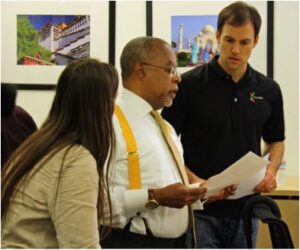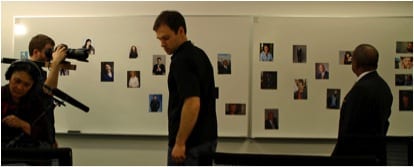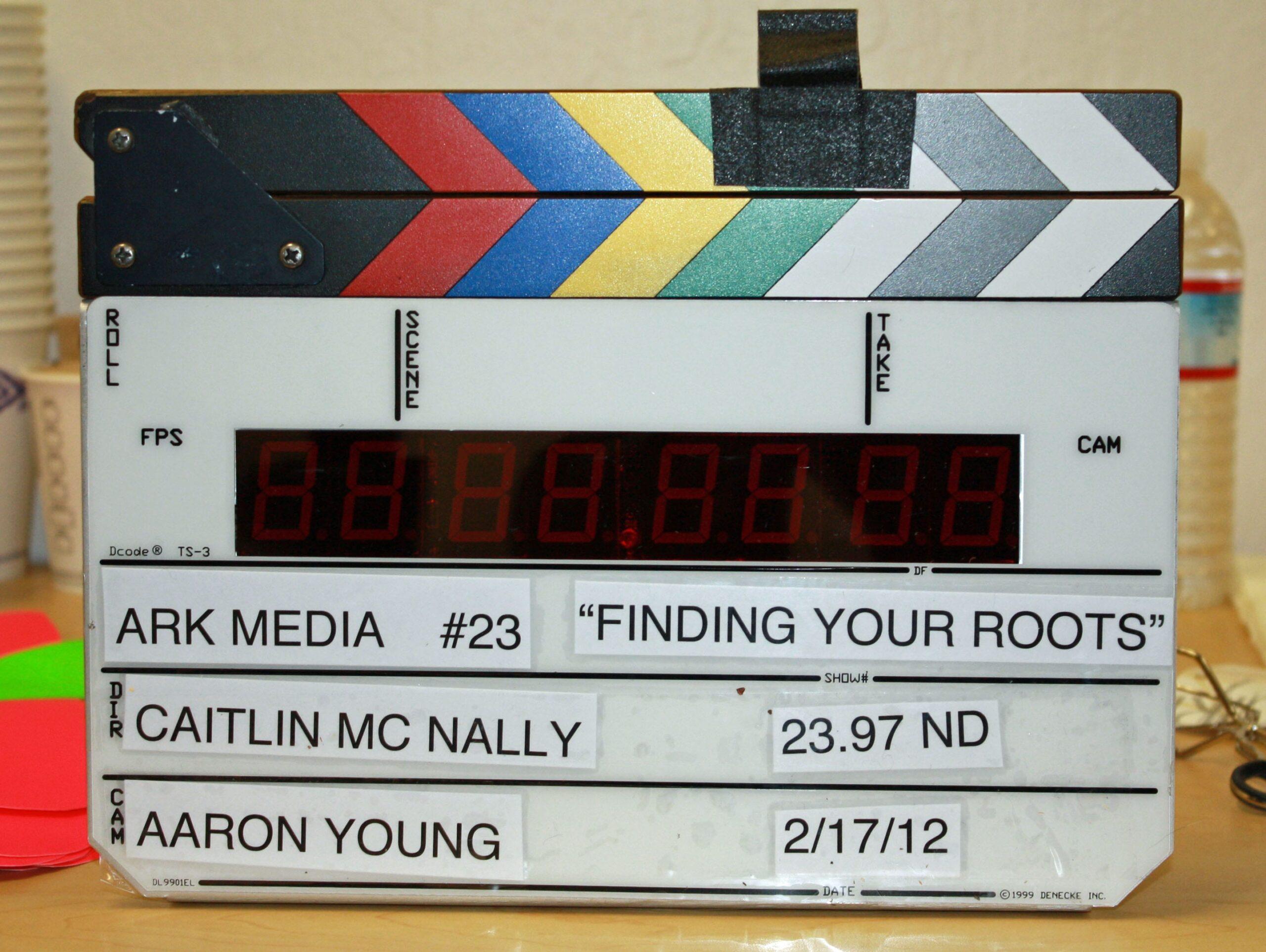Check out this post for an illustration of the three degrees of separation between guests on Finding Your Roots.
When we learn about our ancestors, who they were, and where they came from, the discoveries become part of how we define ourselves and understand ourselves as unique. The PBS series Finding Your Roots has taken this further, showing us how much we share with others and how interconnected our stories are.
 23andMe Scientist Mike Macpherson going over connections between guests with Prof. Henry Louis Gates, Jr. and a Finding Your Roots producer.
23andMe Scientist Mike Macpherson going over connections between guests with Prof. Henry Louis Gates, Jr. and a Finding Your Roots producer.
Finding Your Roots
This has been a theme of the 10-part series, something that the show’s host, Professor Henry Louis Gates, Jr., has repeatedly repeated—that despite our differences, whether racial or cultural, Americans are more interconnected than we know.
It isn’t just that our stories share parallels but that the connections run deep and can be seen in our DNA. It’s ironic that as the world’s population has grown exponentially in the last 500 years – from about half a billion to now seven billion – we are closer and more connected.
During the show’s filming, Professor Gates visited 23andMe and talked to scientists Mike Macpherson and Joanna Mountain, both of whom served as consultants.
Connecting People
At one point, Macpherson taped up photographs of the roughly two dozen guests who appeared in Finding Your Roots. Then, he sketched out the genetic connections that linked this seemingly random collection of people.
This was the first time someone demonstrated the genetic connectivity of any two people on Earth. Macpherson made some surprising links that connected, for example, Martha Stewart to Samuel L. Jackson and Barbara Walters to the Imam Yasir Qadhi.
Unlike previous examples that relied on social connections – friends of friends of friends – this connection is through cousins matched within 23andMe’s database of over 150,000 people.
Social Connections versus Genetic Ones
This wasn’t just a parlor game. Indeed, Stanley Milgram first wrote about the notion that any two people—a cop in New York and a street vendor in Mumbai, say—could be connected through five other people based on experiments he conducted in the late 1960s. It’s a little more complicated than Milgram theorized, but he got the gist right.
 23andMe scientist Mike Macpherson sketching connections between the guests on Finding Your Roots as Prof. Gates looks on.
23andMe scientist Mike Macpherson sketching connections between the guests on Finding Your Roots as Prof. Gates looks on.
These previous theories of connectivity focused on social connections, the idea that we are all – all seven billion of us – linked to each other by six degrees of separation.
This connectivity theory even spawned a game named after one of Gates’ guests, “Six Degrees of Kevin Bacon.” The game links any actor to Kevin Bacon by five other performers. Bacon – whose wife Kyra Sedgewick was also on the show – said for a long time he hated that his name was the punchline for a joke. But he has since embraced it and is using the idea of social connections to link people to worthy causes.
More recently, Facebook and LinkedIn have shown that just four “connections” could link any two people together.
Macpherson connected the Finding Your Roots guests via a much shorter genetic chain. Any two people are connected through just one or two other individuals.
Why is this a revelation?
It’s new because this isn’t the notion that you are connected to someone else because of who you know. It’s the notion that you are connected to someone because of who you are related to.
This is a manifestation of human history and human migration over the last 500 years.
People are no longer isolated by geography and so the differences between people are smaller than in the past .
Perhaps in no other place has the convergence of people of different cultures and histories been as dramatic as the Americas. And while the clash of cultures and histories has been both painful and brutal at times, it is what forged our history more than anything else, Gates argues.
“I’ve always thought that it was that story of America,” said political commentator Linda Chavez in the last episode in the series.
People came here from all over the world, some voluntary and some involuntary, and mixed, she said, “and that’s made us stronger.”
This post by 23andMe Content Editor Scott Hadly and 23andMe Senior Director of Research Joanna Mountain first appeared last week on PBS’s Finding Your Roots website. It was one of a series of posts by 23andMe. Dr. Mountain was a consultant for the the 10-part series.




